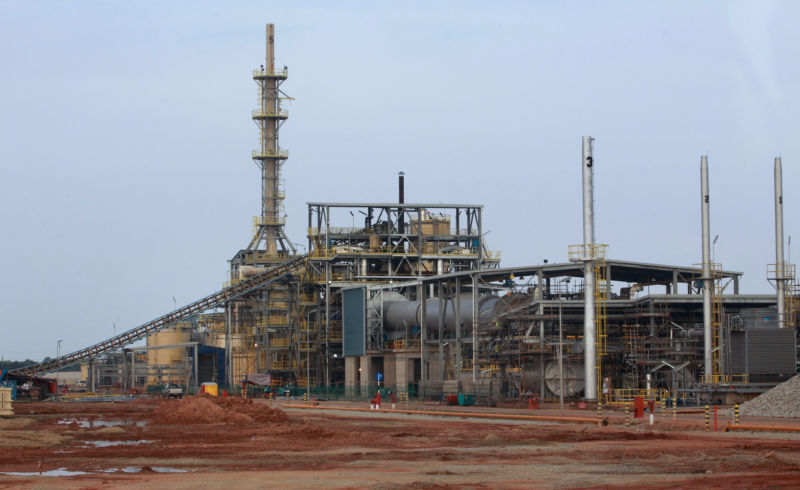
This week, two rare-earth mineral-processing companies announced a new joint-venture whose aim will be to establish a rare-earth ore processing plant in Hondo, Texas.
Lynas Corp., an Australian rare-earths processor, and Blue Line Corp., a chemical company which is already based in Texas, agreed to a partnership to "see that US companies have continued access to rare-earth products by offering a US-based source."Rare-earths minerals are found in consumer electronics, military equipment, electric vehicles, and wind turbines and solar panels. China sees rare-earths metals as a potential wedge in current trade talks with the United States, because it mines and processes the majority of the rare-earths used around the world.
Though a Lynas/Blue Line processing plant in Texas could mitigate some of the threat associated with China's hold on the rare-earths industry, such a plant would likely take a while to get up and running.
Currently, the only rare-earths mine in the US is in Mountain Pass, Calif. But Trump administration tariffs, designed to protect US miners from competition with cheap Chinese raw materials, have actually been hurting Mountain Pass because its primary ore processing plants are in China. Mountain Pass must ship its ore to China to be processed, opening it up to retaliatory Chinese tariffs. According to the The Wall Street Journal, Mountain Pass currently pays a 10 percent tariff on rare-earth ore shipments to China, and on June 1, that's set to increase to 25 percent.
Lynas is one of the largest rare-earths miners and processors outside of China. However, it has a controversial environmental track record at its processing plant in Malaysia (the country is withholding the plant's license renewal contingent on Lynas removing radioactive processing waste that has accumulated there). In addition, rare-earths processing in general is a fairly toxic and resource-intensive endeavor. This suggests that a key factor in whether the Hondo plant will actually materialize will be whether the two companies can comply with US environmental standards while also keeping the processed minerals more affordable than imported rare-earths.
If the Hondo plant does move forward, the companies expect that it would "become the lone major producer of separated medium and heavy rare-earth products outside of China." The plant would focus on separating dysprosium and terbium, rather than light rare-earth products like neodymium and praseodymium, which are processed at Lynas' Malaysia plant.
reader comments
213